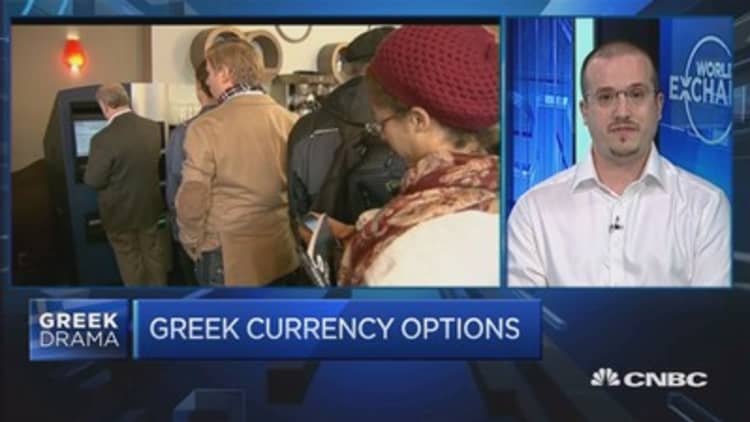Rather than shunning potentially disruptive digital currencies, the biggest names in the financial industry are looking at integrating the technology behind bitcoin into everyday use.
Bitcoin is a virtual currency that allows users to exchange online credits for goods and services. However, many see the real worth of the cryptocurrency being the technology behind the coin. Called the blockchain -- this is a public and transparent ledger of all bitcoin transactions.
On Tuesday, 13 of the world's leading banks joined a project to explore the possibilities behind using this type of distributed ledger in the mainstream financial world. Institutions like Bank of America, Citi and Deutsche Bank have joined others like Goldman Sachs and J.P. Morgan which had already signed up.

R3 is the New York-based innovations firm behind the program and aims to establish a set of standards for a blockchain that banks can use. Together with R3, the banks will research and experiment with shared ledger solutions to meet banking requirements for security, reliability, performance, scalability, and audit.
Niall Cameron, head of EMEA markets at HSBC called it an "exciting partnership" in a press release Tuesday and said that the bank was "pleased to be involved." Satoshi Murabayashi, a CIO at Mitsubishi UFJ Financial Group said that clients deserved a banking experience that comes with "enhanced security, low costs and minimal errors."
It might still be early days but the technology could effectively allow payments to be made instantly without a centralized authority and it would also be transparent with each bank being allowed access to the ledger.
Stopping 'too big to fail'

One way the blockchain initiative could help the financial industry is in the several new developments in the derivatives industry relating to how financial markets operate. Regulation has tried to radically change the risks associated with financial derivatives trading - which has been blamed -- rightly or wrongly -- seen as accentuating the crash.
Clearing houses, also known as central clearing counterparties (CCP), have been seen as the answer by policymakers. However, Robert Sams, the CEO of Clearmatics, believes the distributed ledger could be a real solution for the industry.
"The CCPs are now the largest counterpart to most of the players in the derivatives market and are 'too big to fail'," Sams told CNBC via email.
"Collateralization and resolution procedures are supposed to mitigate the risk of an event leading to public rescue, but these assumption-laden procedures are fragile and might be blown to bits upon first contact with market reality in times of stress. We should be decentralizing counterparty risk, not centralizing it."
Sams, and his London-based firm Clearmatics, have been tasked with innovating with derivatives trading with a form of the public ledger similar to bitcoin's. UBS is one big bank that has already shown an interest and reports state that many more are keeping a keen eye on the project.
An end to counterfeiting?
Aside from financials, this public ledger has a host of other practicalities. Pantera Capital, an investment fund founded by Dan Morehead, are investing in a firm that using the technology to help detect counterfeiting in the luxury goods industry.
Morehead, however, is cool on the idea of it being used by banks.
"You have the problem still that it is susceptible to rogue agents at any of the banks," he told CNBC via telephone, name checking Nick Leeson, the former Barings Trader.



